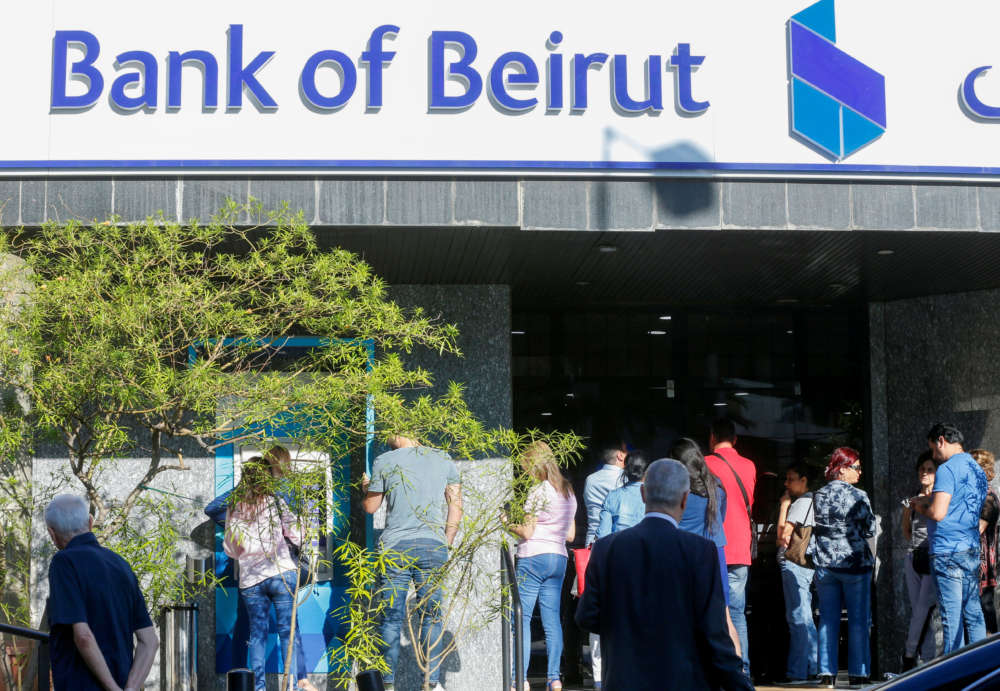Lebanon’s cash-strapped authorities are struggling to decide what to do about a $1.2 billion Eurobond maturing in March but are leaning towards repayment for foreign holders and a swap for local investors, political and banking sources said on Tuesday.
Lebanon, which has never defaulted on its hefty debt, is in the throes of a financial and economic crisis that has shattered confidence in banks and ignited protests against a political elite blamed for steering the country towards collapse.
A government source and two senior political sources said big differences remained over options: pay in full, ask local holders of the issue to swap for longer-dated notes delaying payment by at least 10 years, or simply not pay.
Two of those sources and three senior bankers said a swap would ease pressure on dwindling foreign currency reserves and buy time. Three sources said the government has not initiated any steps for a default scenario.
Lebanon’s dollar bonds have gained in recent days, with the rally particularly pronounced among shorter-term bonds, signalling growing expectations that the government might pay its most immediate debt obligations.
The country has $2.5 billion in principal and $1.9 billion in coupon payments on Eurobonds due in 2020.
The March 2020 issue has added 12% in the past four trading sessions and was trading at 84.6 cents to the dollar on Tuesday, according to RRPSBONDS data.
In contrast, Lebanon’s longer-dated bonds are trading at 50 cents to the dollar or lower, indicating a higher probability of a debt default or restructuring at some point.
The government source said that Lebanon, grappling with one of the world’s heaviest debt burdens, would not be able to avoid a debt restructuring further down the road and would need assistance from the International Monetary Fund, which would require consensus in Lebanon’s fractured political landscape.
“Kicking the can down the road by paying means a lot of money out of scarce resources and there are more maturities coming in April and June, so it’s only a few months of extra breathing space,” said Paul McNamara, investment director at asset manager GAM.
The two political sources said Prime Minister Hassan Diab preferred making the March payment on time to avoid any blemish on the country’s reputation as his government, formed last month, tries to win back the confidence of international donors.
“He does not want to start his term with a default on debt obligations and give any negative sign to the international community,” one of the political sources told Reuters.
Ratings agencies have warned a swap would constitute a selective default.
One of the senior bankers said he expected the government to ask domestic holders to agree on a swap. “This is bad for the banks … but it’s not like we have much of a choice,” he said.
(Reuters)






